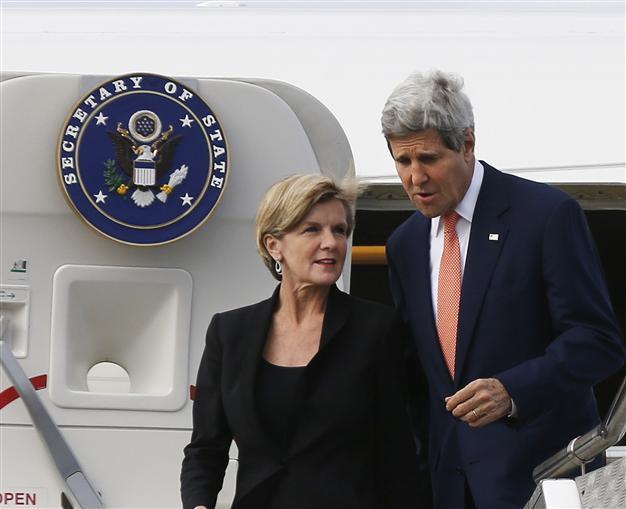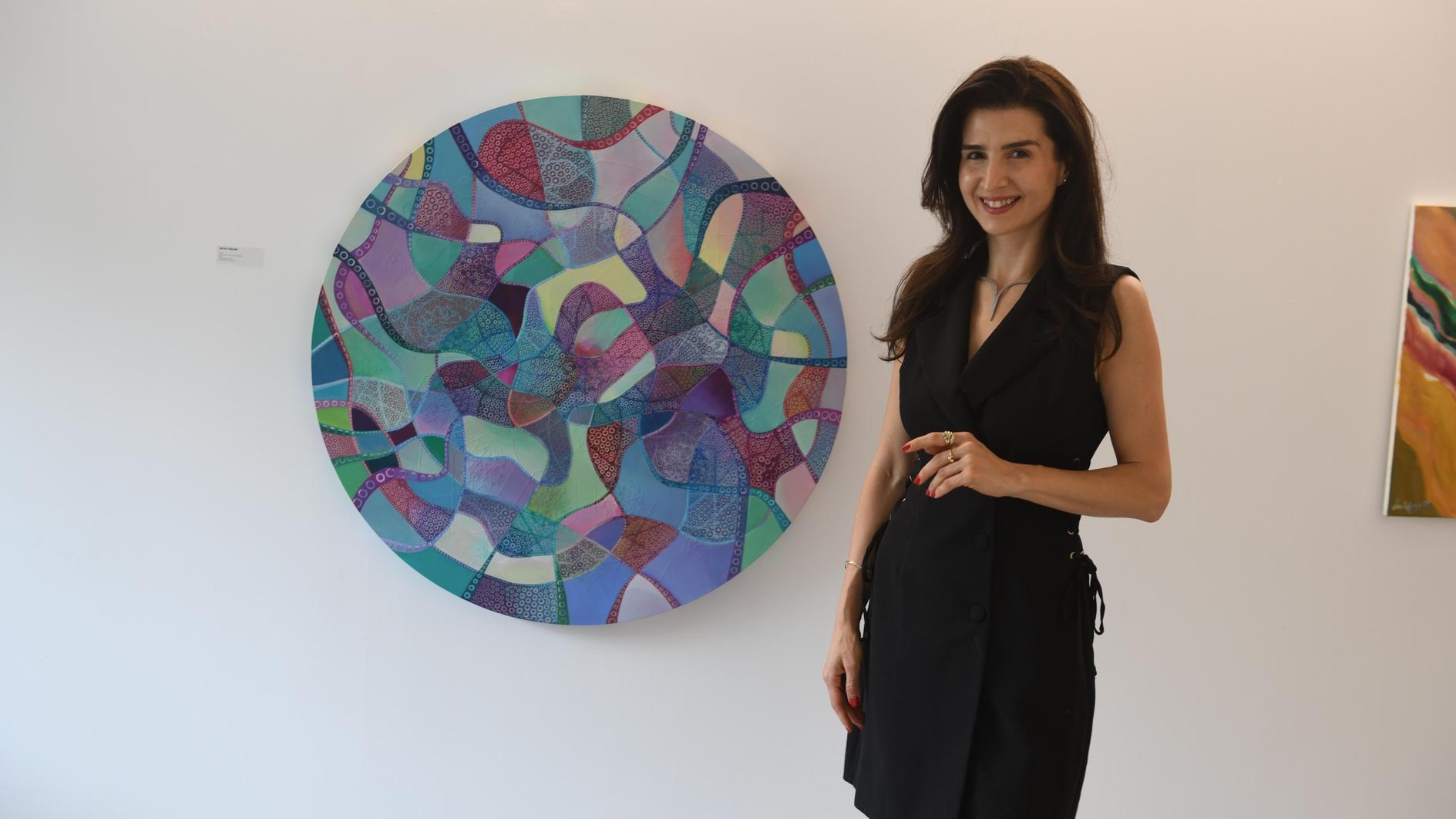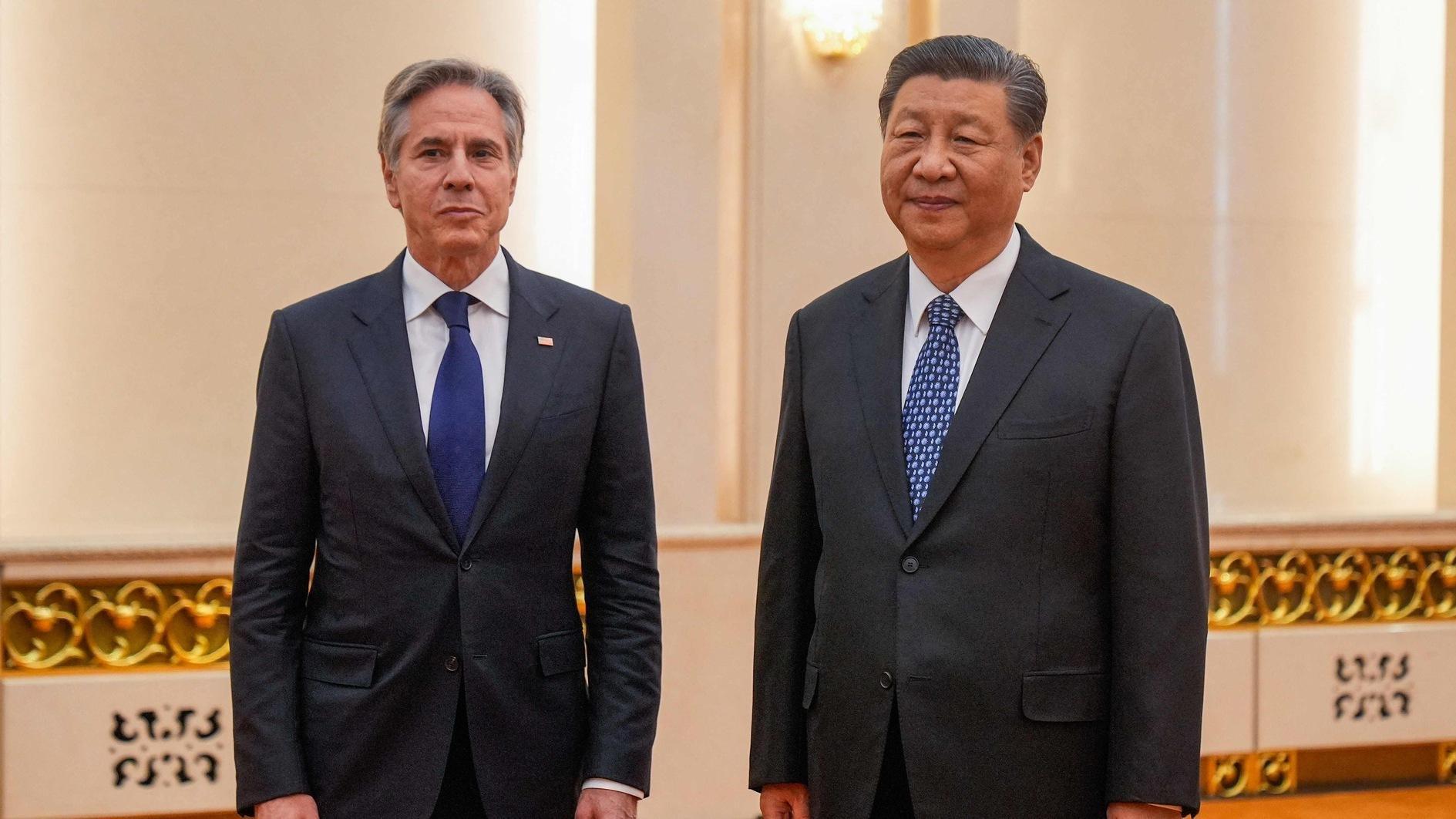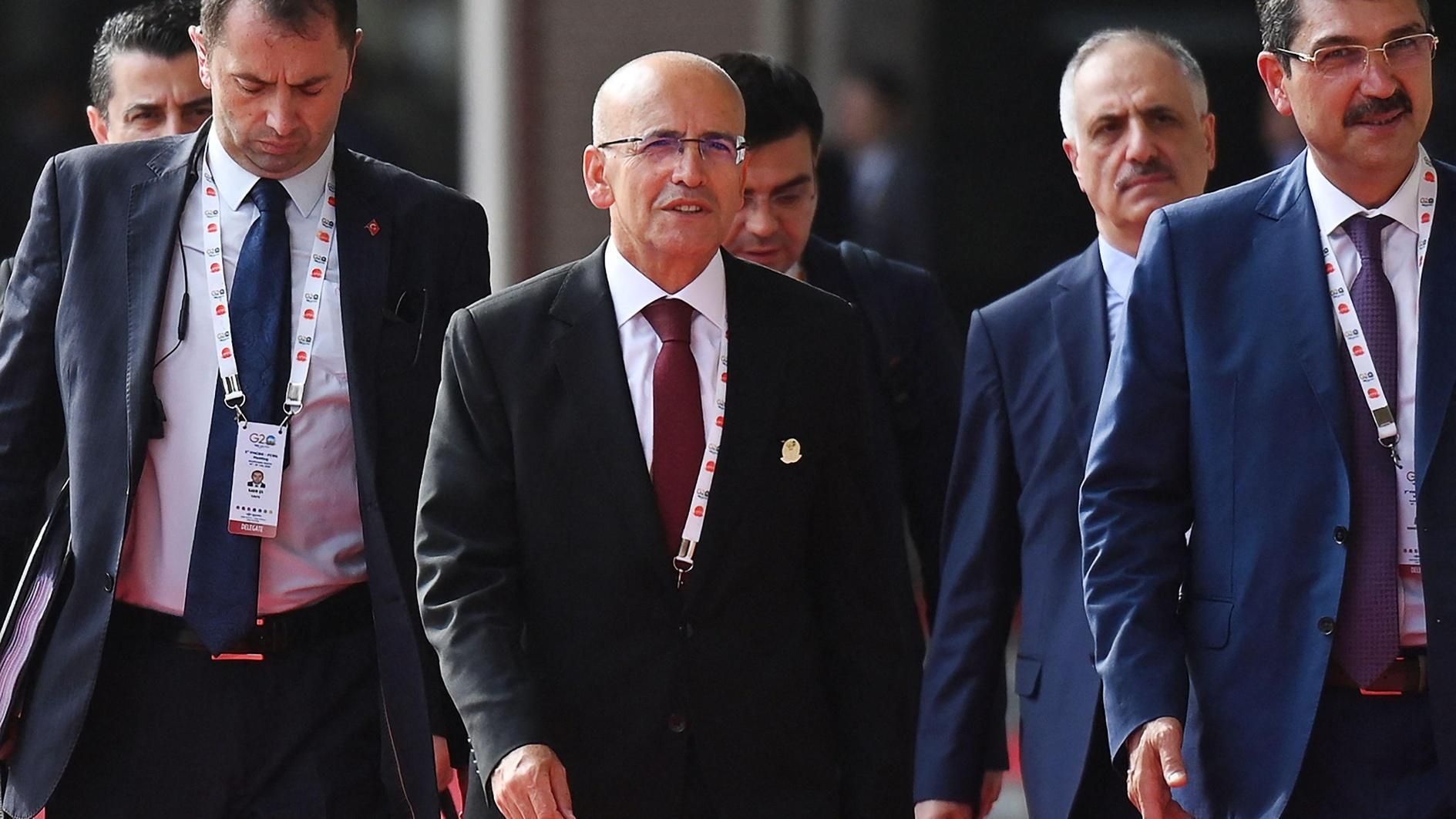Kerry warns Iraq's Maliki not to stir up trouble
SYDNEY - Agence France-Presse

U.S. Secretary of State John Kerry (R) steps off his aircraft alongside Australia's Foreign Minister Julie Bishop in Sydney, August 11, 2014. REUTERS Photo
US Secretary of State John Kerry on Monday warned Iraqi Prime Minister Nuri al-Maliki not to cause trouble as he threw his weight behind newly-elected President Fuad Masum to help fight Islamic militants.The comments came after a defiant Maliki announced Sunday he was filing a complaint against Masum, and a massive security presence deployed in the capital Baghdad as the country's political crisis spiralled further.
Maliki, who has been under huge pressure to give up his bid for a third term as premier, alleges that Masum has violated the constitution -- including by failing to task him with forming a government.
Maliki's State of Law coalition won far more seats than anyone else in April's elections, but the premier is accused by critics, even from his own Shiite Arab majority, of steering the country towards all-out sectarian war.
Iraq's federal court on Monday declared Maliki's coalition the largest in parliament, in a boost to his desperate efforts to hold onto power.
But it remained unclear whether Masum, who was elected Thursday, would hand Maliki a chance to form a government or explore other options.
"We stand absolutely squarely behind President Masum (who) has the responsibility for upholding the constitution of Iraq," Kerry said in Sydney, where he will attend annual US-Australia military talks, just ahead of the court decision.
"He is the elected president and at this moment Iraq clearly made a statement that they are looking for change."
Security sources said Monday that Iraqi police, army and counter-terrorism forces were deployed in unusually large numbers across strategic locations in Baghdad overnight.
Kerry urged calm and called for the constitutional process to be completed.
"Among the Shias it is very, very evident that they have three candidates or so for prime minister. None of them are Mr. Maliki," he said.
"So what we urge the people of Iraq to do is to be calm.
"There should be no use of force, no introduction of troops or militias into this moment of democracy for Iraq.
"Iraq needs to finish its government formation process and the United States will do everything possible in order to support the upholding of the constitution."
He added that Washington believed "the vast majority of the people of Iraq are united in an effort to be able to have this peaceful transition".
"We believe that the government formation process is critical in terms of sustaining the stability and calm in Iraq," Kerry said.
"Our hope is that Mr. Maliki will not stir those waters.
"One thing all Iraqis need to know (is) that there will be little international support of any kind whatsoever for anything that deviates from the legitimate constitutional process that is in place and being worked on now."
Many Iraqis see Maliki as partly responsible for the recent conflict in northern Iraq, saying he institutionalised sectarianism.
The June onslaught on areas north and west of Baghdad led by Islamic State militants has brought Iraq to the brink of break-up, with the government struggling to assert any authority beyond its Shiite power base.
The United States has been conducting air strikes on IS positions in the north and on Monday a US State Department official said Iraqi Kurds were now "being armed by various sources".
The official added that "they are getting something rapidly". The comments came as security sources said IS fighters had defeated Kurdish troops in the flashpoint Iraqi town of Jalawla, killing at least 10 in a fierce two-day battle.
On Sunday France's Foreign Minister Laurent Fabius said that in consultation with its EU partners Paris was looking at supplying arms to the Kurds.
















